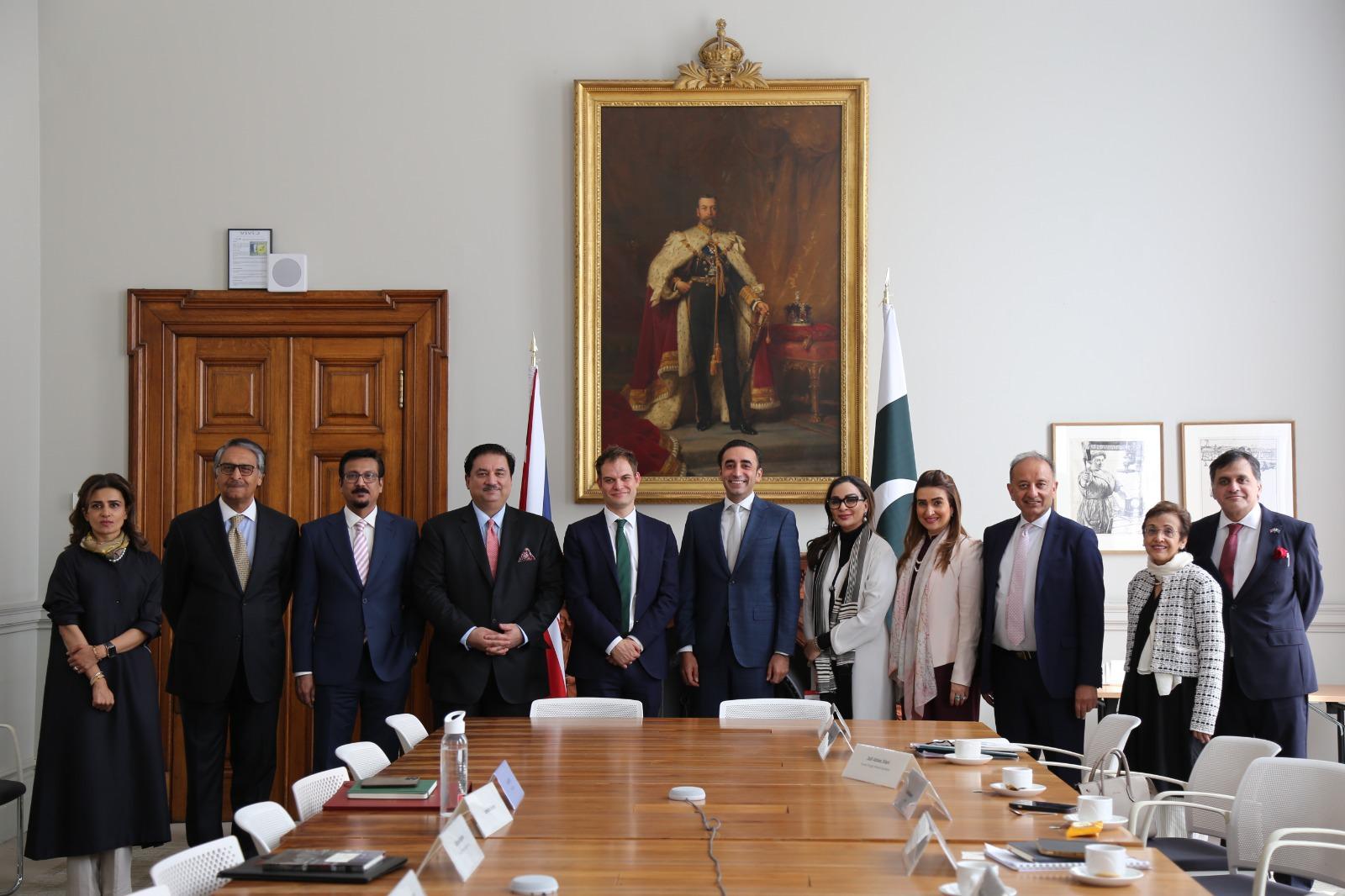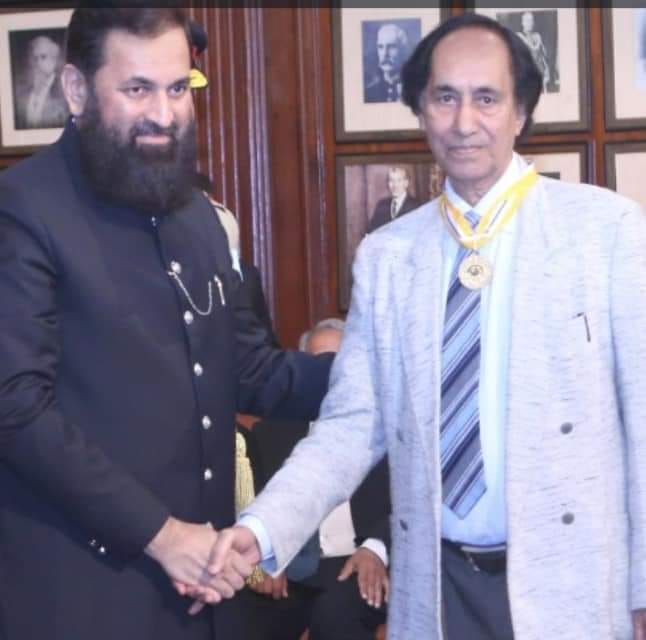Bilawal Bhutto Zardari's Strategic Mission to the UK
Editorial

In the complex chess game of international relations, few moves demonstrate strategic brilliance quite like Pakistan's recent diplomatic mission to the United Kingdom. Led by Bilawal Bhutto Zardari, the Chairman of the Pakistan People's Party and former Foreign Minister, this high-level parliamentary delegation has executed what can only be described as a masterclass in crisis diplomacy.
What sets this mission apart is not merely its timing—coming in the wake of heightened tensions following the Pahalgam incident—but rather the sophisticated approach Bhutto Zardari has employed to reframe Pakistan's narrative on the global stage. This is diplomacy at its most strategic, combining moral authority with practical politics to achieve maximum impact.
To understand the brilliance of this diplomatic initiative, we must first examine its structural components. Bhutto Zardari assembled a delegation that reads like a who's who of Pakistan's foreign policy establishment. The inclusion of former Foreign Ministers Hina Rabbani Khar and Khurram Dastgir, seasoned diplomats like Jalil Abbas Jilani and Tehmina Janjua, and parliamentary leaders such as Senator Sherry Rehman creates a formidable team that brings both experience and credibility to every engagement.
This careful composition serves multiple purposes. It demonstrates Pakistan's commitment to presenting a unified front while ensuring that the message is delivered by voices that carry weight in international circles. When Bhutto Zardari speaks at prestigious venues like Chatham House and the International Institute for Strategic Studies, he does so with the full backing of Pakistan's diplomatic establishment.
Perhaps most impressive is how Bhutto Zardari has positioned Pakistan's narrative. Rather than simply responding to allegations, he has proactively established Pakistan as the responsible actor in the region. His emphasis on Pakistan's "mature, responsible, and restrained conduct" in the face of provocations is not mere rhetoric—it's a carefully crafted message designed to appeal to international audiences who value stability and measured responses.
The delegation's focus on India's unilateral suspension of the Indus Waters Treaty represents particularly astute diplomatic thinking. By framing this as the "weaponization of water" that "undermines international norms," Bhutto Zardari transforms a regional dispute into a global concern. This approach recognizes that in today's interconnected world, water security is not just a Pakistani concern—it's a humanitarian issue that resonates with international audiences.
The choice of venues for this diplomatic mission reveals another layer of strategic thinking. Chatham House, with its prestigious reputation and Chatham House Rules that encourage open dialogue, provides the perfect platform for Pakistan to present its case to British policymakers and thought leaders. The closed-door nature of these discussions allows for frank exchanges that can build understanding beyond the public rhetoric.
Similarly, the meeting with Parliamentary Under-Secretary Hamish Falconer at the Foreign, Commonwealth & Development Office demonstrates Pakistan's commitment to working through established diplomatic channels. By engaging directly with British officials responsible for Middle East and South Asian affairs, the delegation ensures that Pakistan's perspective is heard at the highest levels of British government.
What emerges from these engagements is a clear picture of Pakistan's principled stance on regional issues. Bhutto Zardari's consistent emphasis on international law, UN Charter principles, and the right to self-defense positions Pakistan as a defender of the international order rather than a disruptor of it. This is particularly significant given the nuclear dimension of South Asian tensions.
The delegation's approach to the Kashmir dispute exemplifies this principled positioning. Rather than making maximalist demands, Bhutto Zardari calls for "meaningful dialogue" and "comprehensive discussion" while emphasizing that Kashmir remains "central to ensuring lasting peace in South Asia." This framing acknowledges the complexity of the issue while maintaining Pakistan's core position.
Bilawal Bhutto Zardari's leadership of this mission represents more than just effective crisis management—it signals the emergence of a new generation of Pakistani diplomatic leadership. His ability to articulate Pakistan's position with clarity and conviction, while maintaining the dignity and restraint expected of a statesman, speaks to both his personal capabilities and his deep understanding of international relations.
His social media engagement, particularly his use of the hashtag #Pakistan4Peace, demonstrates an understanding of modern diplomatic communication. This is not just traditional diplomacy—it's diplomacy adapted for the digital age, where public opinion matters as much as private negotiations.
This diplomatic mission's success lies not just in its immediate objectives but in its potential long-term impact. By positioning Pakistan as the reasonable actor seeking peace through dialogue, Bhutto Zardari has created space for international partners to support Pakistan's position. The positive response from British officials, who "welcomed Pakistan's desire for peace" and reaffirmed the UK's commitment to supporting de-escalation efforts, suggests that this strategy is already bearing fruit.
Moreover, this mission establishes a template for how Pakistan can engage with the international community on regional issues. The combination of high-level political representation, expert diplomatic support, and clear messaging creates a model that can be replicated in other capitals and contexts.
In an era where international relations are often characterized by Twitter diplomacy and public confrontation, Bilawal Bhutto Zardari's approach to this crisis represents a return to diplomacy as statecraft. His ability to combine moral authority with strategic thinking, to build coalitions while maintaining principles, and to communicate effectively across multiple platforms demonstrates the kind of leadership that regional and global challenges demand.
This mission to the UK will likely be remembered not just for what it accomplished in the immediate term, but for how it demonstrated Pakistan's capacity for sophisticated, principled diplomacy. In Bilawal Bhutto Zardari, Pakistan has found a leader capable of navigating the complex currents of international relations while never losing sight of the ultimate goal: peace through dialogue, justice through international law, and stability through mutual respect.
The world is watching, and Pakistan's message is clear: it stands ready to engage constructively with all parties to build a more peaceful and stable South Asia. That message, delivered with such skill and conviction, is perhaps the greatest achievement of this remarkable diplomatic mission.


No comments yet.